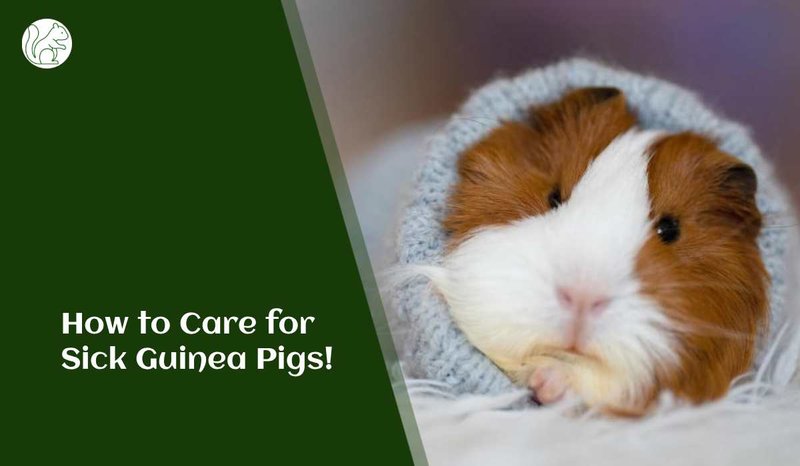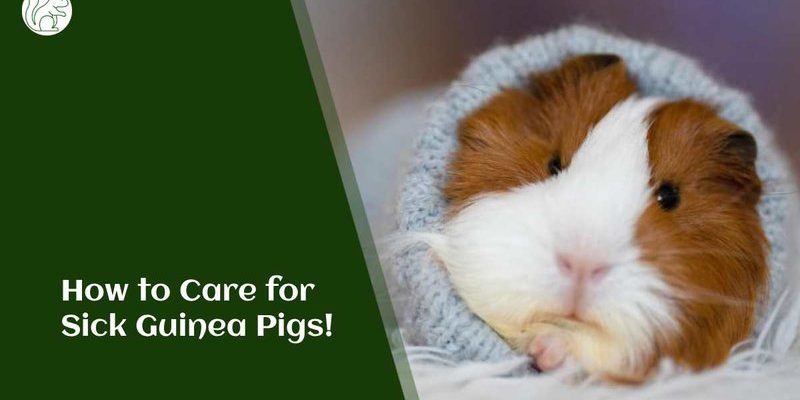
Each little sound, twitch, or change in behavior can tell us something about our pets. So, think of this as your detective handbook, helping you piece together clues about your guinea pig’s health. You’ll learn how to recognize those red flags, and trust me, you’ll feel more confident in caring for your little buddy. Let’s dive in!
Recognizing Symptoms of Illness
Guinea pigs are generally good at hiding their discomfort. It’s almost like they have a little secret club where they pretend everything is fine, even when it’s not. This makes it crucial for you to be observant. Some common symptoms to watch for include:
- Changes in Appetite: If your guinea pig suddenly refuses to eat or drink, that’s a big red flag. They love their veggies and pellets, so a loss of interest could indicate something’s wrong.
- Lethargy: Does your usual bouncy buddy seem sleepy or uninterested in his favorite activities? If he’s not zooming around or interacting as he typically does, it’s worth looking into.
- Unusual Noises: If your guinea pig is wheezing, coughing, or making a strange sound, he might be in distress. Guinea pigs are usually vocal, so listen closely!
Each of these symptoms could point to a variety of issues, from dental problems to respiratory infections. If you notice any of these signs, it’s time to keep a close eye on your pup.
Behavioral Changes to Note
Sometimes, the symptoms aren’t physical but behavioral. If your guinea pig’s personality seems to have swapped places with that of a grumpy cat, pay attention! Some things to consider include:
- Hiding: If your guinea pig is spending more time than usual hiding in his house or staying away from you, this could be a sign of stress or illness.
- Increased Aggression: A normally sweet guinea pig who’s suddenly nippy may be feeling unwell. Pain can lead to irritation, so don’t write off this behavior lightly.
- Changes in Posture: Watch how he holds himself. A hunched posture or reluctance to stretch out can signal discomfort.
These changes can provide critical insights into your guinea pig’s health. Remember, even small shifts can mean a lot. If something feels off, trust your gut and investigate further.
Physical Signs of Illness
With guinea pigs, their bodies often tell a story. Physical signs can sometimes be more telling than behavioral cues. Keep an eye out for these indicators:
- Weight Loss: Regularly weigh your guinea pig. If you notice he’s dropping weight without a change in diet, that could indicate health issues.
- Fur Quality: Dull, unkempt fur can be a sign that your guinea pig isn’t feeling well. Healthy fur should be smooth and shiny.
- Discharge: Look out for any nasal or eye discharge. Mucus can signal respiratory infections, and you’ll want to catch this early.
These physical signs can be essential clues, so don’t overlook them. Your observations here can play a crucial role in getting your guinea pig the help he needs.
Understanding Common Health Issues
Once you notice a few of the symptoms we’ve discussed, it’s helpful to understand what could be happening. Here’s a quick overview of some common health issues:
- Dental Problems: Guinea pigs can suffer from dental issues, which might cause pain and lead to loss of appetite. Regular dental checkups can prevent serious problems.
- Respiratory Infections: Symptoms like coughing, sneezing, and nasal discharge could indicate a respiratory problem. These can worsen quickly, so seek veterinary care.
- Gastrointestinal Issues: If your guinea pig isn’t pooping as usual, it could be a blockage or other digestive issue. This can be serious, so consult a vet if you notice changes.
Understanding these common problems can help you act swiftly. The sooner you can identify an issue, the better the chances are for a full recovery.
When to Seek Veterinary Care
You might be wondering how you know when it’s time to call the vet. Here are a few guidelines:
- Immediate Attention: If your guinea pig is lethargic, has difficulty breathing, or shows signs of severe pain, don’t wait. These symptoms demand urgent veterinary help.
- Persistent Symptoms: If you notice symptoms lasting more than a day or worsening over time, it’s wise to schedule a visit with a vet.
- Unusual Behavior: If his behavior suddenly changes dramatically, consult a professional. It’s always better to be safe than sorry.
Remember, it’s always better to err on the side of caution with your pet’s health. If you’re ever in doubt, reaching out to a vet is a good step.
Home Remedies and Care
While it’s essential to get professional care when needed, there are some things you can do at home to help your guinea pig feel better. Here are a few suggestions:
- Hydration: Ensure he always has access to fresh water. If he’s not drinking, try offering watery vegetables like cucumbers or bell peppers.
- Comfortable Environment: Make sure his living space is clean and cozy. Sometimes, a little extra TLC can go a long way in uplifting his spirits.
- Monitor Diet: Keep offering fresh hay and veggies, as these can encourage digestion and overall health.
These steps can provide some immediate comfort but remember they are not a substitute for veterinary care in serious cases.
The Importance of Regular Check-ups
Finally, one of the best ways to keep your guinea pig healthy is through regular veterinary check-ups. Just like we go for annual check-ups to catch potential issues early, your guinea pig needs the same attention.
Regular visits can help:
- Prevent Illness: Catching health issues before they become serious can make all the difference.
- Monitor Weight: A vet can help you keep track of your guinea pig’s weight, ensuring he’s in the healthy range.
- Dental Health: Professional assessments can help spot dental problems early, which is critical since guinea pigs are prone to dental issues.
Establishing a good relationship with a veterinarian who understands guinea pig care can ensure your little buddy remains in top shape.
In conclusion, being attentive and observant is key to catching any potential health issues with your guinea pig. Remember to trust your instincts when something seems off. With the right care and awareness, you can provide a happy, healthy life for your furry friend. Always seek professional help when you feel it’s necessary. Your guinea pig will thank you for it!

